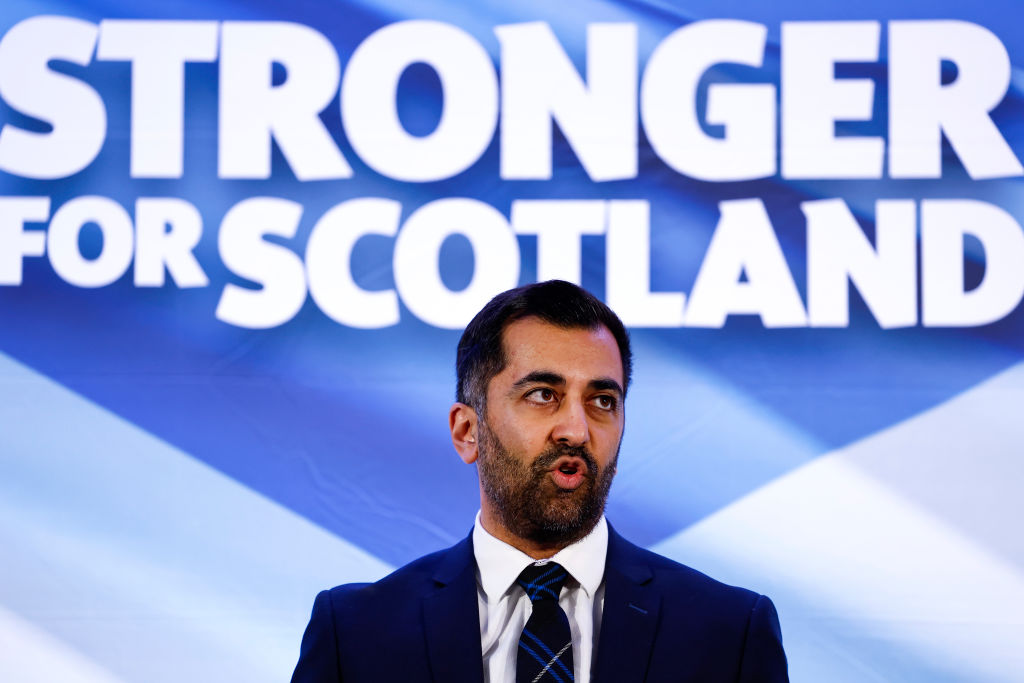It was announced to a particularly tense room at 2 p.m. that Humza Yousaf had won the SNP leadership race. The contest was expected to be close and many people assumed that if second preferences were accounted for, Kate Forbes would most likely prevail. Ash Regan’s voters didn’t quite manage to swing it in Forbes’s favour and Yousaf won by just over 2,000 votes.
He is set to become both the youngest first minister of Scotland, and the first Muslim leader in the UK. For him, this election win means breaking records and perhaps Yousaf thought this pattern would continue when he made his first move as leader of the Scottish National party: Yousaf said he would be asking Prime Minister Rishi Sunak for a Section 30 order ‘right away’ which would allow Scotland to hold an independence referendum. But, just as calls for another independence vote have been rejected in the past, Yousaf’s luck was to be no different. Sunak promptly rejected the request.
Not only is the membership split, almost half-and-half, but many senior politicians appear to be at odds with half of the members that voted
Not a great start, then. But what other first steps is Yousaf planning to take? While he was the establishment’s favourite to succeed Nicola Sturgeon, Yousaf differs from his predecessor on a key issue: his approach to independence. Where Sturgeon wanted to pursue the strategy of a de facto referendum, Yousaf – like Forbes – more cautious in his approach. He believes that spending time persuading No voters of the merits of independence is the best way to proceed. In today’s speech, Yousaf addressed those opposed to separating from the Union: ‘I will aim to earn your trust by continuing to govern well, and earn your respect as First Minister by focusing on the priorities that matter to us all’, while telling Yes voters that ‘we will only win by making the case on the doorsteps’.
Other policy commitments will take top priority, Yousaf said, despite his immediate Section 30 request: ‘My immediate priority will be to continue to protect every Scot as far as we can from the harm inflicted by the cost of living crisis, to recover and reform our NHS and other vital public services, to support our wellbeing economy and to improve the life chances of people across our country.’ Yousaf faces an uphill struggle though given his track record in government – particularly on the health service – isn’t unblemished.
And perhaps one of the biggest problems Yousaf faces is one that Sturgeon didn’t need to deal with: the issue of party unity. Presenting himself as a modest winner, Humza nodded to his competitors, both of whom he has exchanged sharp words with during the race, saying: ‘There will be no Team Humza, there will be no Team Kate, there will be no Team Ash: there will be Team SNP.’ Will this be enough to convince the party membership, and indeed the wider general public, that those wounds torn open during the contest can be so easily fixed?
Kate Forbes told the media huddle that she believes Humza Yousaf is committed to ensuring party unity, referencing his promise to speak to both herself and Ash Regan straightaway. ‘Uniformity is not unity,’ the runner up said in a statement on Yousaf’s win. ‘We can debate and disagree well, and then work together.’
Ash Regan’s statement was a little less supportive: ‘Ash Regan believes that while unity is essential, the party must also engage in open and honest discussions about its policies and future direction.’ A nod to the party’s more controversial policies that Regan had stood in protest of, namely the gender bill and the deposit return scheme, the statement continued: ‘She urges Humza Yousaf to create an inclusive environment where all party members’ voices are heard and valued, fostering a culture of transparency and accountability.’
What is clear from the results of the vote is that the SNP are indeed facing a divided party. Not only is the membership split, almost half-and-half, between the pursuit of a progressive agenda versus social conservatism, but many senior politicians – most of whom lent their support to Yousaf – appear to be at odds with half of the members that voted. And further still, it is striking to see that a third of the existing SNP membership didn’t even bother to cast a vote. For a party that has recently had its declining membership exposed, despite resistance from the SNP, the vote breakdown appears to indicate that the dwindling engagement levels amongst a large proportion of those remaining members.
Yousaf may have won the leadership contest, but this is only the beginning for him and his party. As the SNP move into a new era, voters will be watching closely to see whether a man who was labelled ‘incompetent’ as a cabinet minister can handle leading the country as First Minister.







Comments